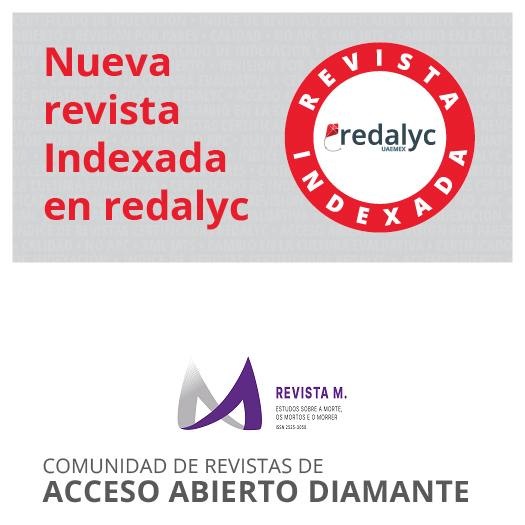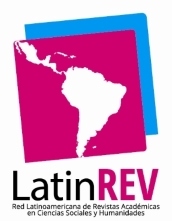Pollution and contagion:
the plague as a result of miasma in Oedipus King
DOI:
https://doi.org/10.9789/2525-3050.2021.v6i11.39-61Keywords:
Miasma, Plague, Contagion, Purity, ImpurityAbstract
This paper aims at analysing the way through which the notion of miasma can be considered as indispensable to understand both contagion and the plague in Oedipus Rex. First, one analyses some Homeric excerpts that demonstrate the relation of the characters with the purification of the hands before worship actions and also Aeschylus and Sophocles’ approach to the notions of purity and impurity. Then, one analyses the catastrophic dimension that the miasma bears in Oedipus Rex. By doing so, one sustains the thesis that contagious plague in the latter is due to Oedipus’ dirtiness to which he did not seek proper cleansing. Hence, one seeks to disengage the play from the notion of divine punishment showing that the blood is an extremely powerful source of contamination.
Downloads
References
ANTUNES, Leonardo. Comentários. In: SÓFOCLES. Édipo Tirano. São Paulo: Todavia, 2018. p. 119-145.
AREND, Walter. Die typischen Szenen bei Homer. Berlin: Weidmannsche Buchhandlung, 1933. 162 p. (Forschungen zur Klassischen Philologie 7).
ASSUNÇÃO. Teodoro Rennó. Lotófagos (Odisseia IX, 82-104): comida floral fácil e risco de desistência. Revista Classica, Belo Horizonte, v. 29, n. 1, p. 273-294, 2016. Disponível em: https://revista.classica.org.br/classica/article/view/416. Acesso: 14 fev. 2020. https://doi.org/10.24277/classica.v29i1.416.
ASSUNÇÃO. Teodoro Rennó. O banho de Diomedes e Odisseu no fim do canto X da Ilíada (572-577). Nuntius Antiquus, Belo Horizonte, v. 14, n. 2, p. 13-32, 2018. Disponível em: https://periodicos.ufmg.br/index.php/nuntius_antiquus/article/view/17063. Acesso 26 nov. 2020. https://doi.org/10.17851/1983-3636.14.2.13-32.
BAILLY, Anatole. Le Grand Bailly. Paris: Hachette, 2000. 2272 p.
CHANTRAINE, Pierre. Dictionnaire étymologique de la langue grecque. Histoire des mots. Paris: Librairie Klincksieck, 2009. 1140 p.
COSTA, Lorena Lopes da. Os lotófagos da Odisseia ou sobre o esquecimento do retorno. Cadernos de Pesquisa do CDHIS, Uberlândia, ano 30, n. 2, p. 169-185, jul./dez. 2017. Disponível em: http://www.seer.ufu.br/index.php/cdhis/article/view/41684. Acesso em: 12 fev. 2020. https://doi.org/10.14393/cdhis.v30n2.2017.41684.
DELEUZE, Gilles; GUATTARI, Félix. O anti-Édipo. Capitalismo e esquizofrenia 1. Tradução: Luiz B.L. Orlandi. São Paulo: Editora 34, 2010. 560 p.
EDWARDS, Mark. Type-Scenes and Homeric Hospitality. Transactions of the American Philological Association, Baltimore, v. 105, p. 51-72, 1975. Disponível em: https://www.jstor.org/stable/283933. Acesso em: 13 fev. 2020. https://doi.org/10.2307/283933.
FREUD, Sigmund. A interpretação dos sonhos. Tradução: Paulo César de Souza. São Paulo: Companhia das Letras, 2019. 736 p.
GUAL, Carlos García. Enigmático Edipo. Mito y tragedia. Madrid: Fondo de Cultura Económica de España, 2012. 275 p.
LACAN, Jacques. O seminário. Livro 5: as formações do inconsciente (1957-1958). Tradução: Vera Ribeiro. Rio de Janeiro: Jorge Zahar, 1999. 532 p.
PARKER, Robert. Miasma: Pollution and Purification in Early Greek Religion. Oxford: Clarendon. 1996. 413 p.
UGOLINI, Gherardo. “Loimòs e mìasma”. Edipo à la peste. Istituto Italiano per gli Studi Filosofici. Napoli, 8 abr. 2020. Disponível em: https://www.iisf.it/index.php/attivita/pubblicazioni-e-archivi/diario-della-crisi/gherardo-ugolini-loimos-e-miasma-edipo-e-la-peste.html. Acesso em: 12 fev. 2020.
VERNANT, Jean-Pierre. Mito e sociedade na Grécia Antiga. Tradução de Myriam Campello. Rio de Janeiro: José Olympio Editora, 1992, 132 p.
VIDAL-NAQUET, Pierre. Le chasseur noir. Paris: Éditions La Découverte, 2005. 488 p.
Downloads
Published
How to Cite
Issue
Section
License

This work is licensed under a Creative Commons Attribution 4.0 International License.
Licença Creative Commons CC BY 4.0




















